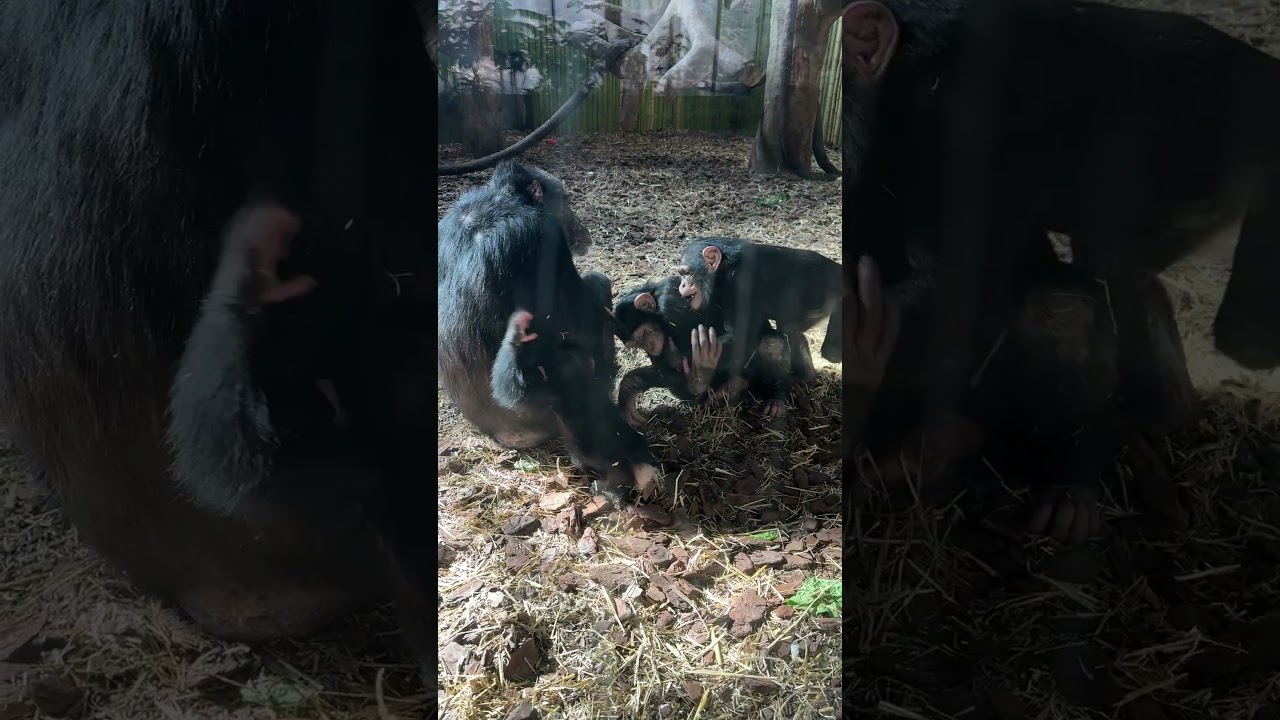- Understand the daily life and social structures of chimpanzees in a zoo habitat.
- Explore the role of zookeepers in maintaining and enriching chimpanzee habitats.
- Discuss the importance of conservation efforts and public education programs in zoos.
- Examine the challenges and strategies in zoo management for primate care.
- Highlight the scientific and ethical considerations involved in managing chimpanzee welfare.
Chimpanzees, highly intelligent primates sharing roughly 98.7% of their DNA with humans, captivate millions at zoos worldwide. Observing their daily life provides insight into their social structures, behaviors, and the care they receive. Today, we’ll explore a regular day in the chimpanzee habitat, emphasizing the intricate aspects of zoo management, conservation, and educational outreach.
Chimpanzees are naturally social creatures, forming complex hierarchies within their groups. A typical day in the chimpanzee habitat may start with morning grooming sessions, a vital social activity. Grooming not only fosters community bonds but also plays a role in maintaining hygiene. By observing and documenting these interactions, zookeepers can draw conclusions about the well-being and social dynamics of each individual.
Zookeepers play a pivotal role in ensuring the optimal environment for chimpanzees. Every day, they implement enrichment activities designed to stimulate natural behaviors and enhance well-being. These activities might include puzzle feeders that mimic foraging challenges or new objects to explore. Enrichment is not just about keeping chimpanzees entertained; it is crucial for their cognitive and emotional health.
An essential component of zoo management is the habitat’s physical environment. It must offer opportunities for climbing, nest-building, and physical exercise, closely mimicking a chimpanzee’s natural environment. Providing a dynamic space encourages physical activity, reducing the risk of obesity and related health issues. Zookeepers and zoo designers often collaborate to ensure the habitat is both a sanctuary and an engaging playground.
Education and conservation are at the heart of zoo missions. Public education programs aim to raise awareness about the plight of chimpanzees in the wild. With habitat loss and illegal wildlife trade threatening wild populations, zoos play an indispensable role in conservation. They contribute to global breeding programs, which are crucial for maintaining genetic diversity. Engaging visitors through informative talks and interactive sessions can spark an interest in wildlife conservation among the general public.
Managing a chimpanzee habitat within a zoo is filled with challenges. Behavioral observations are crucial in identifying and mitigating stressors that may impact chimpanzees. Maintaining a balanced diet, monitoring health, and facilitating positive social interactions are among the daily responsibilities of zoo staff. Additionally, chimpanzees’ cognitive abilities require advanced planning for enrichment and training activities, which, in turn, demands a deep understanding of primate behavior.
Scientific and ethical considerations underpin all aspects of chimpanzee management. Zoos must adhere to stringent guidelines and ethical standards when it comes to animal welfare. This includes evaluating the impact of captivity on chimpanzee behavior and mental health. Scientific research conducted in zoos provides valuable data that informs conservation strategies and helps refine care practices.
Another day in the chimpanzee habitat offers a window into the collaborative efforts of zookeepers, conservationists, and educators united in the mission to preserve and understand one of our closest relatives. By prioritizing welfare, promoting awareness, and advancing scientific research, zoos can continue to support the conservation of chimpanzees, ensuring they thrive both in human care and the wild.
*****
Source Description
Another girls day in the chimpanzee habitat with baby chimp Ivy, joined by big sis Lola and 4-year-old Maisie! 🐒💚


